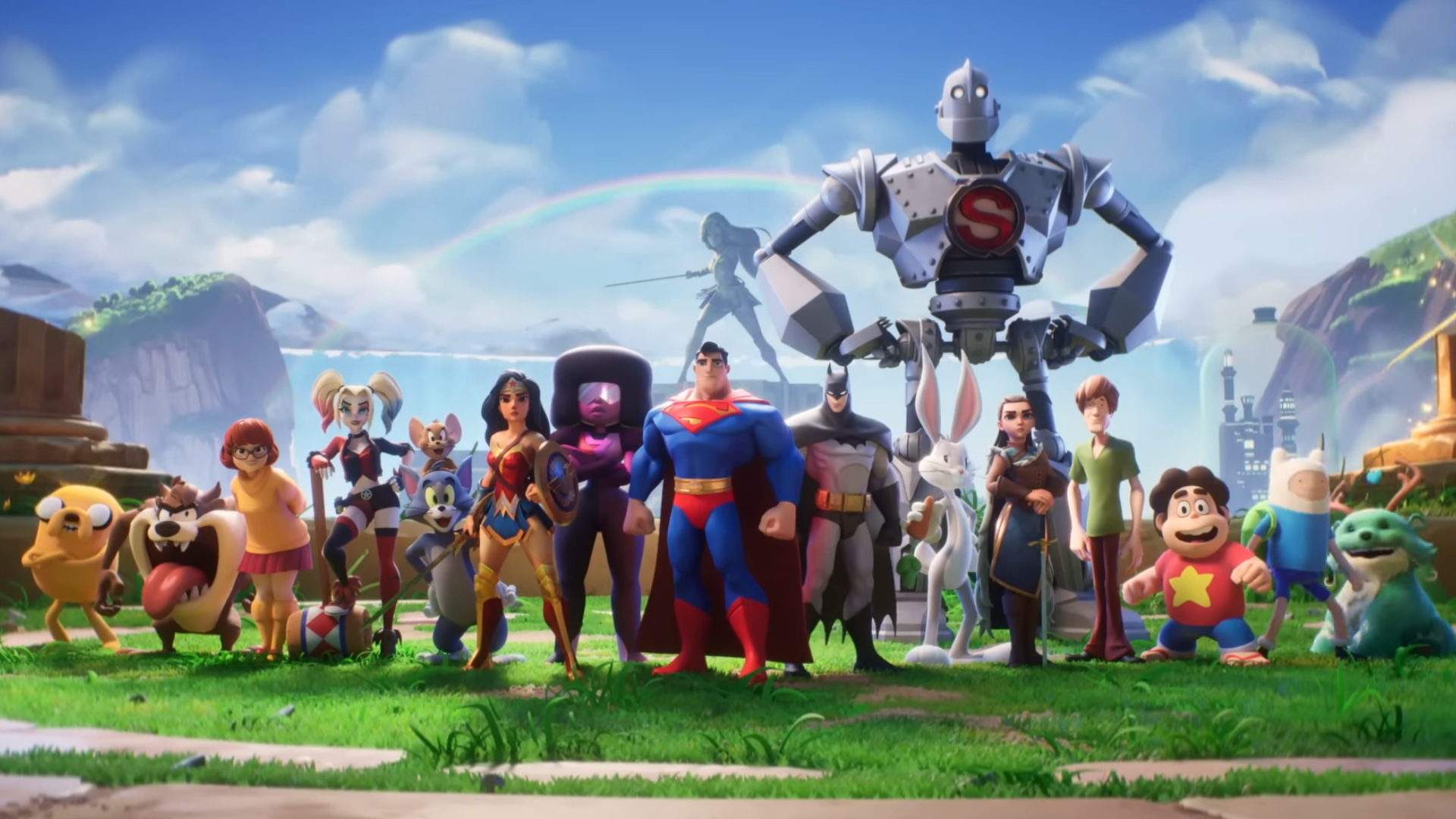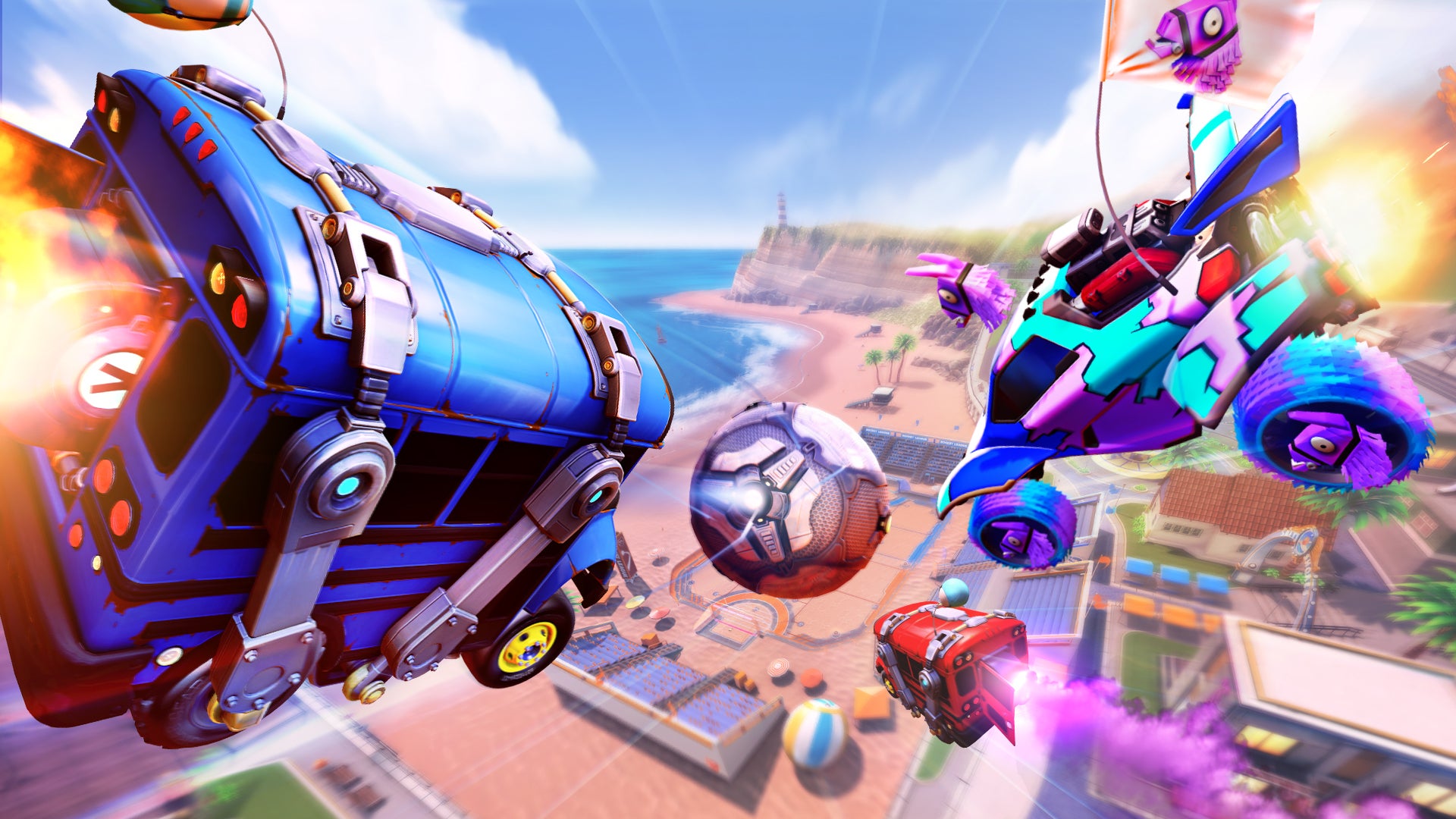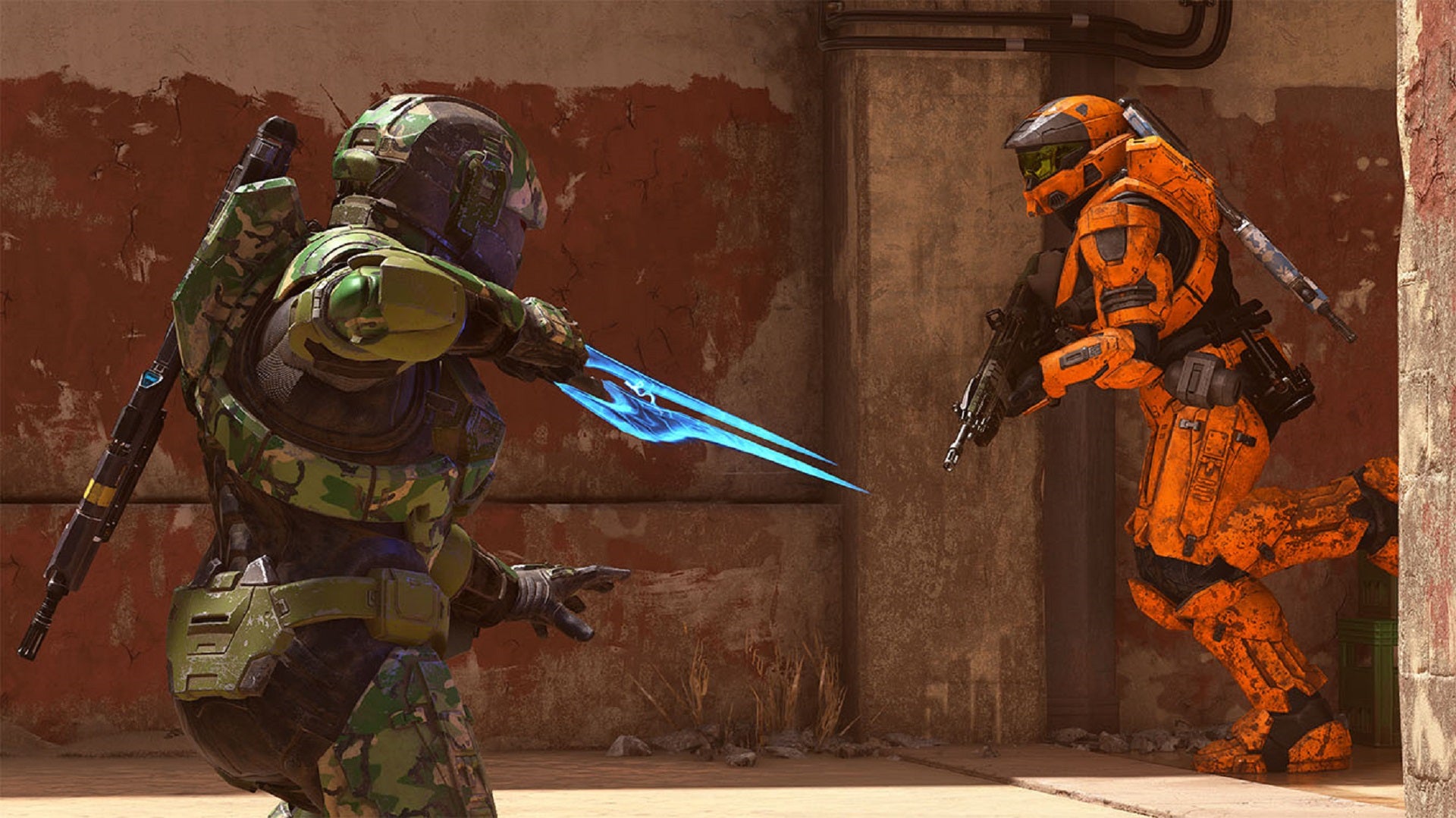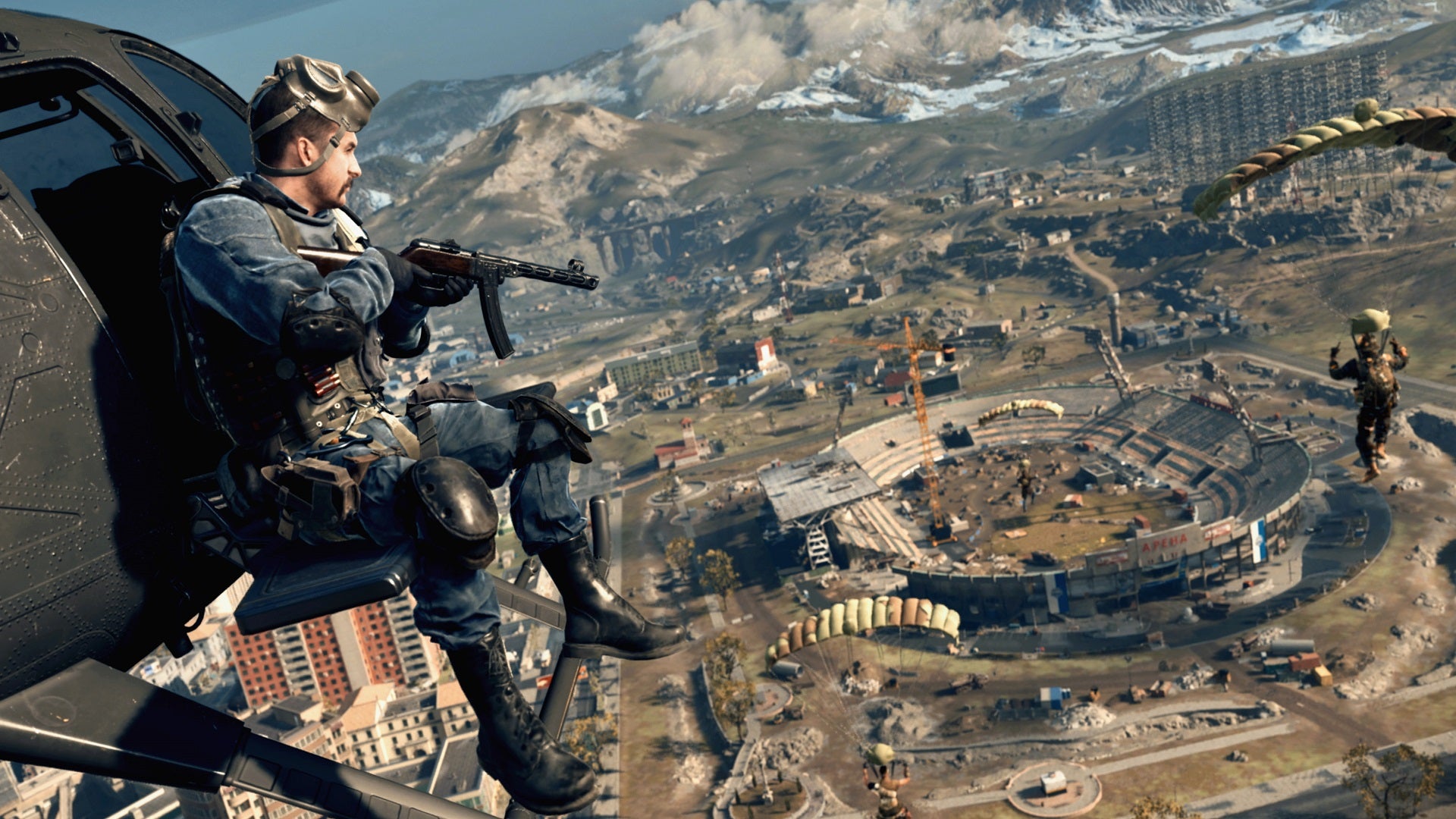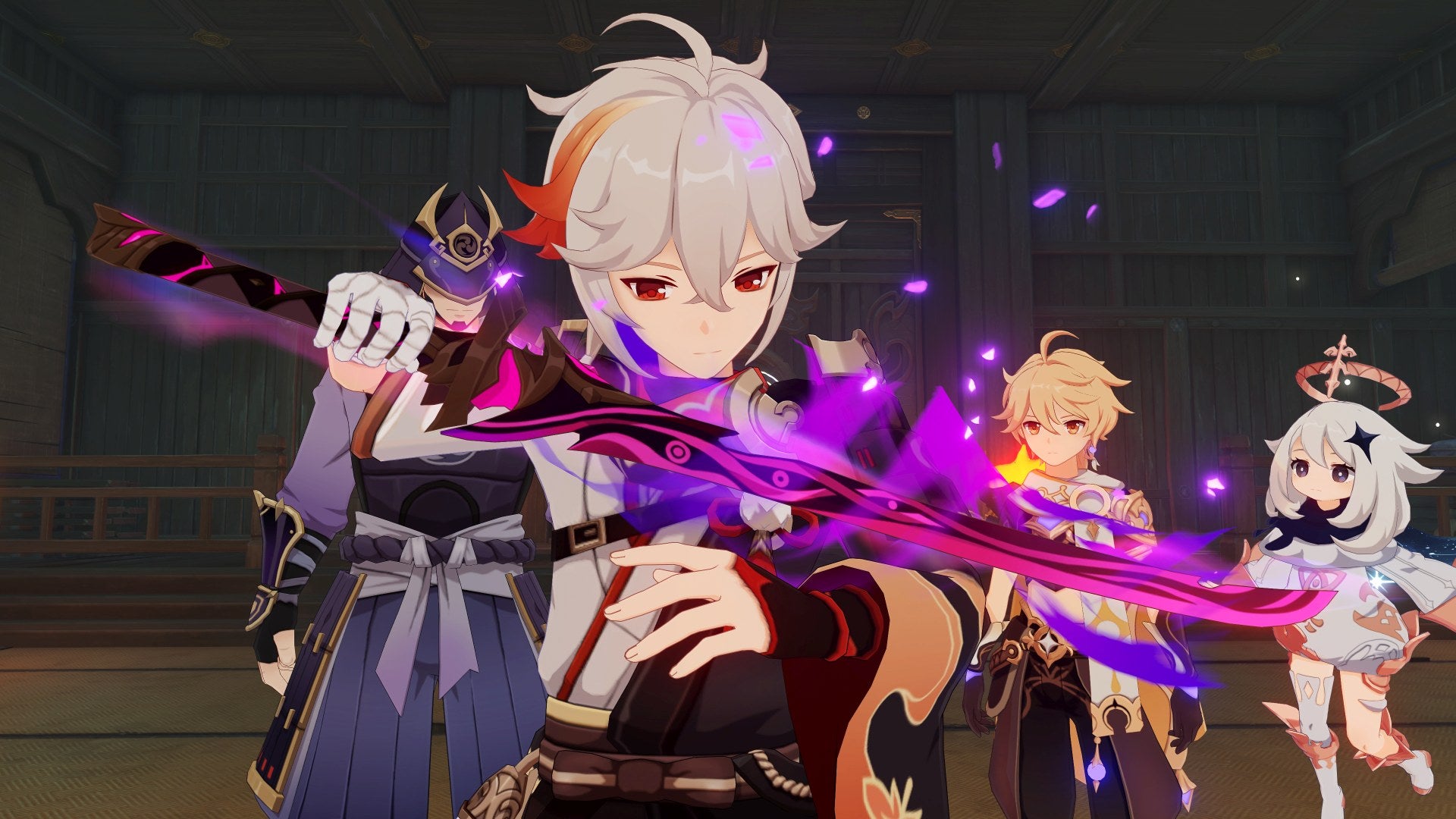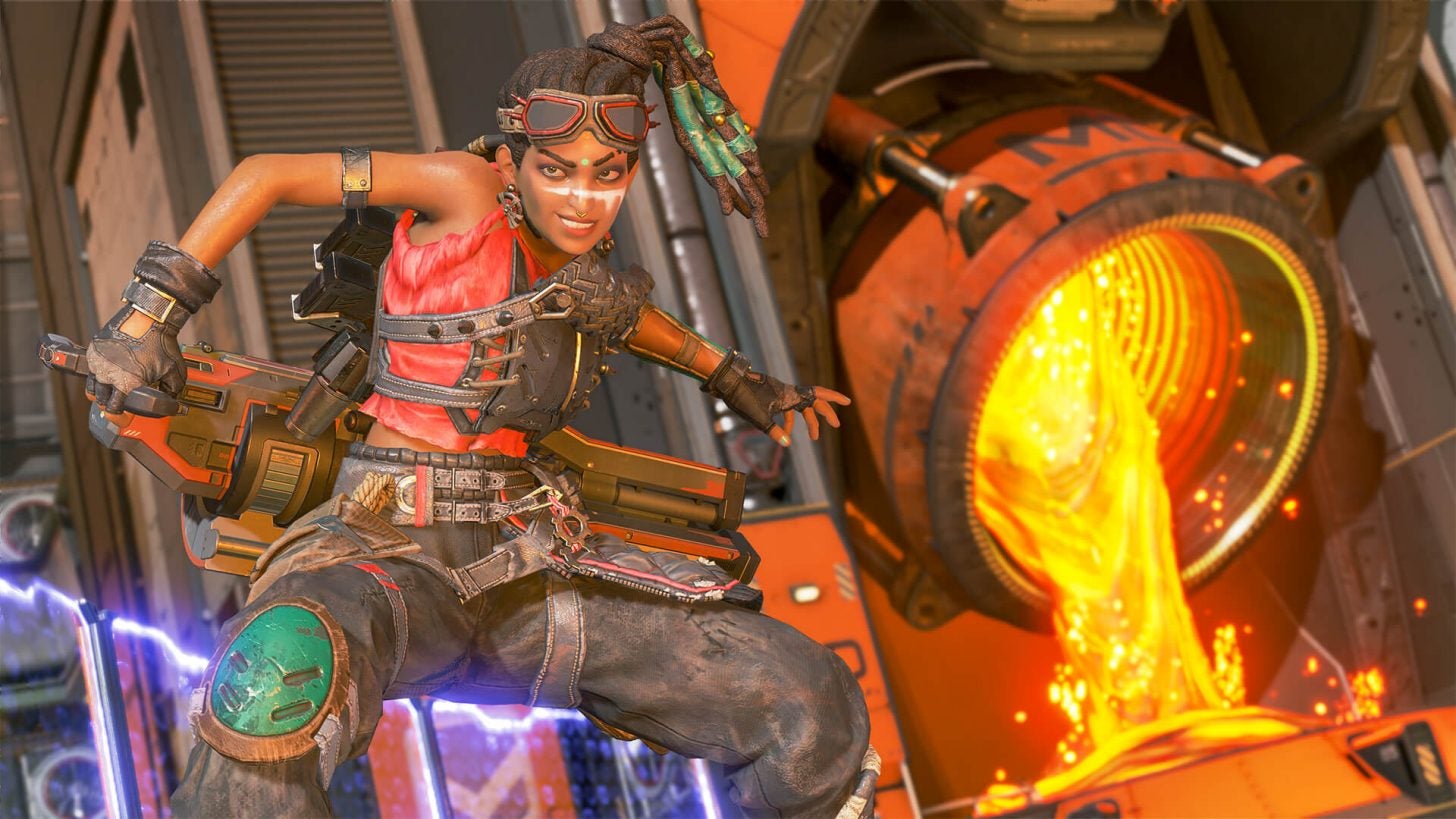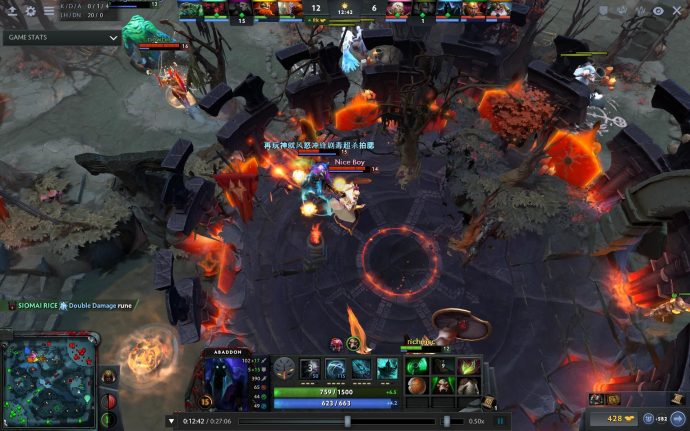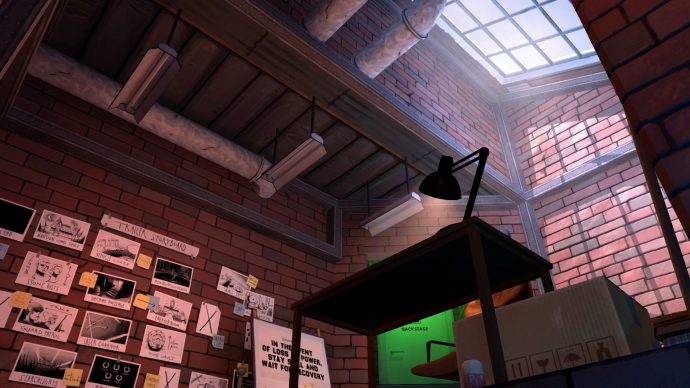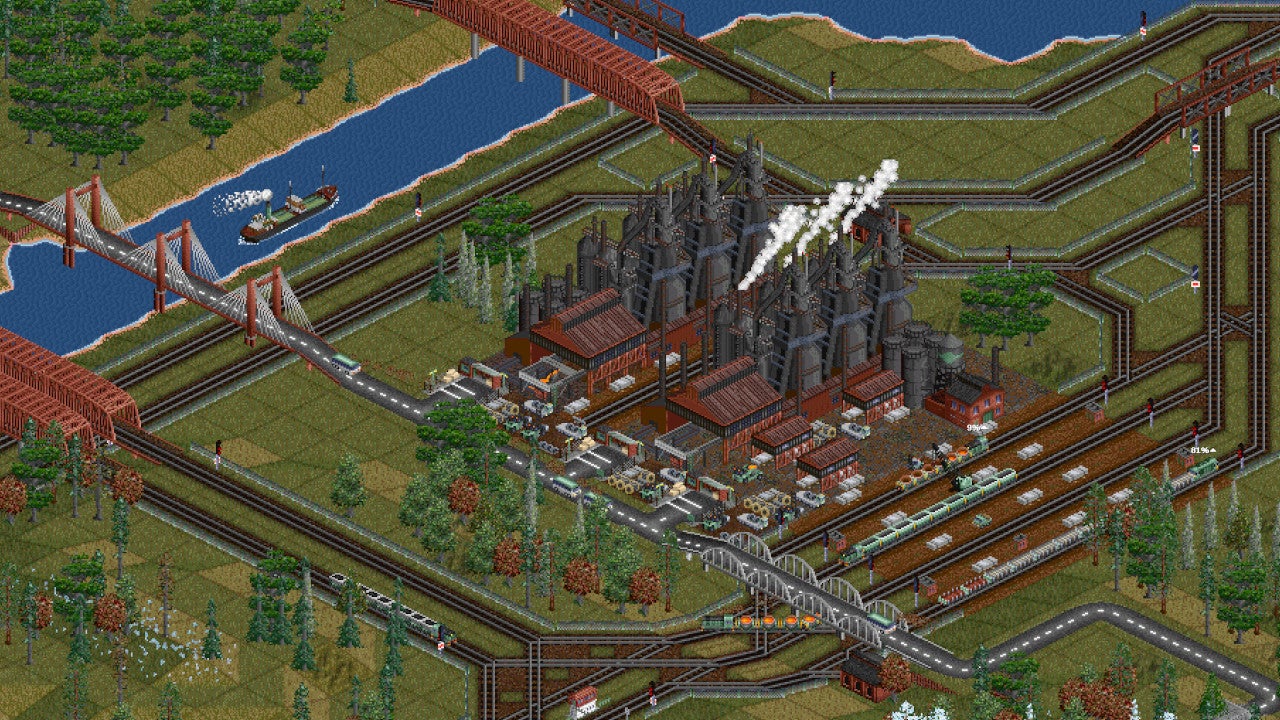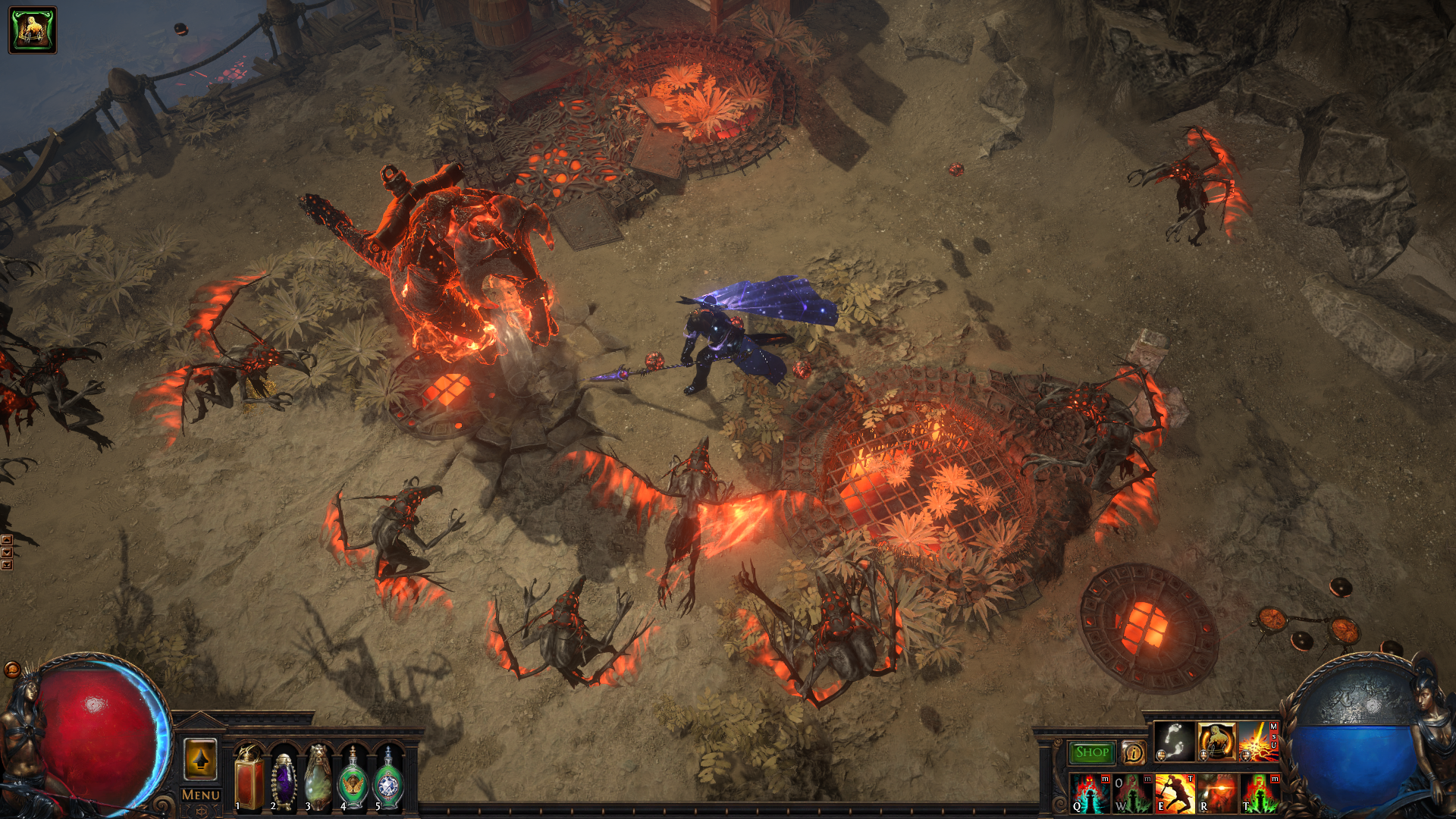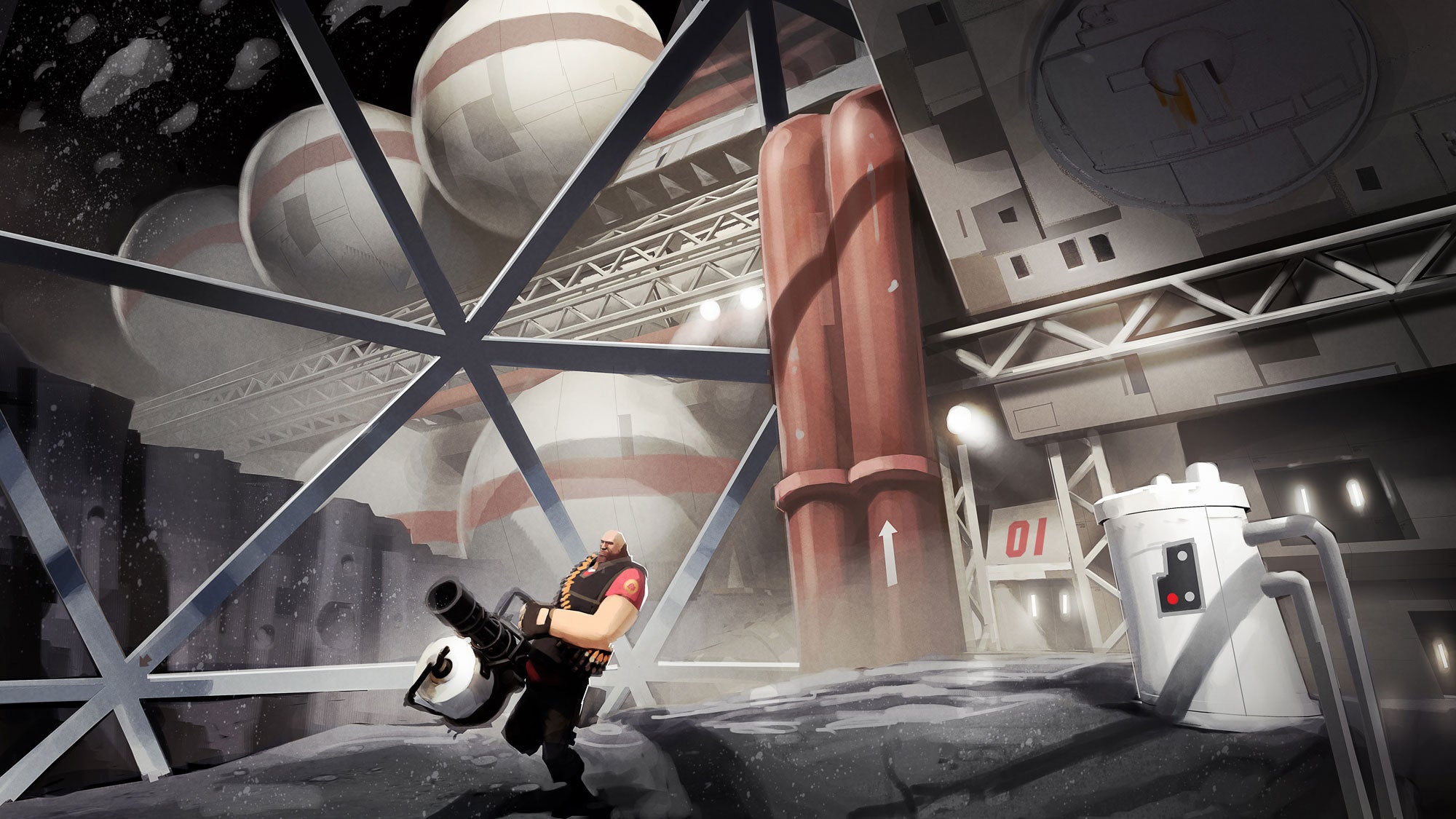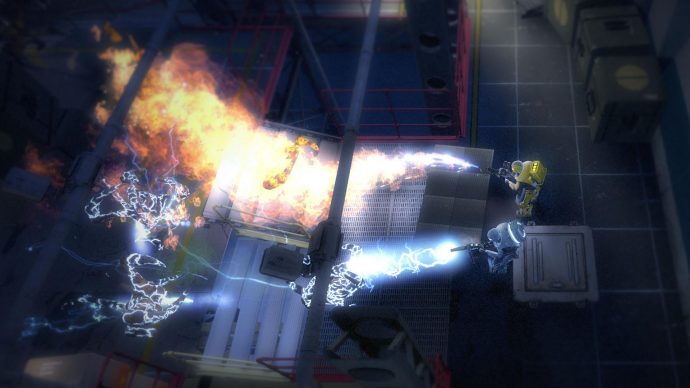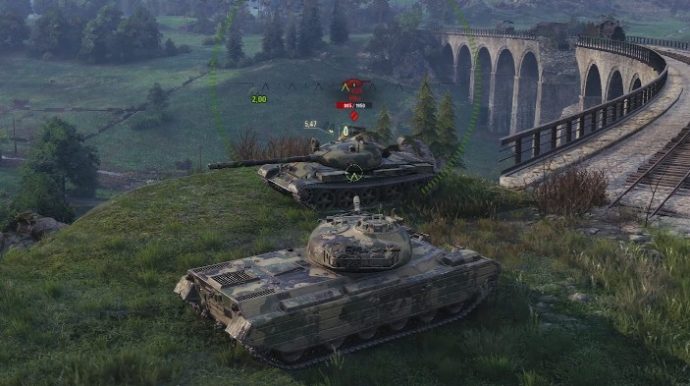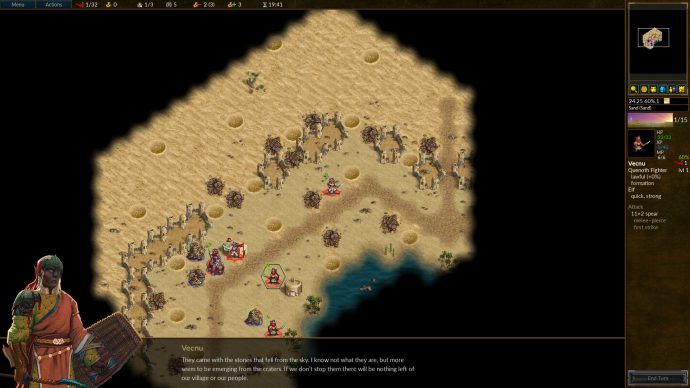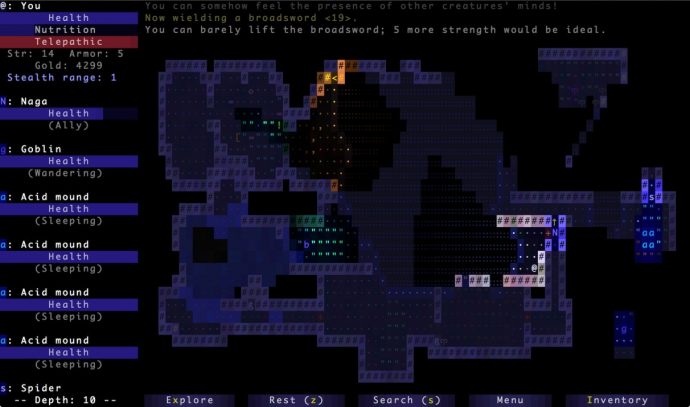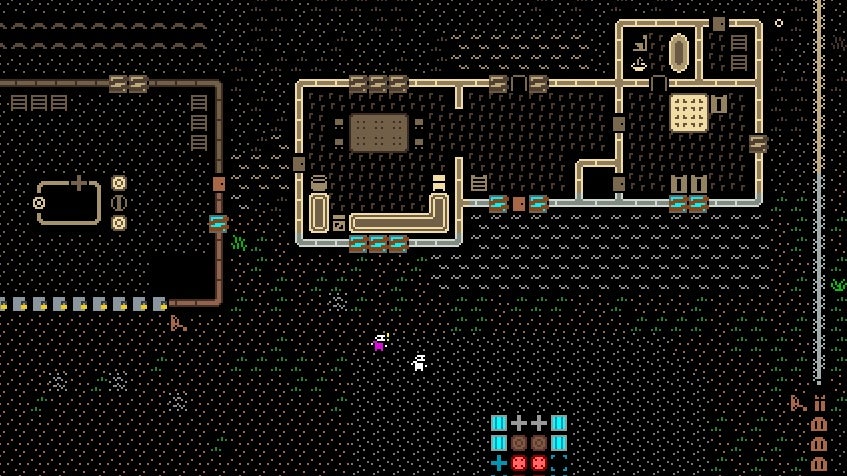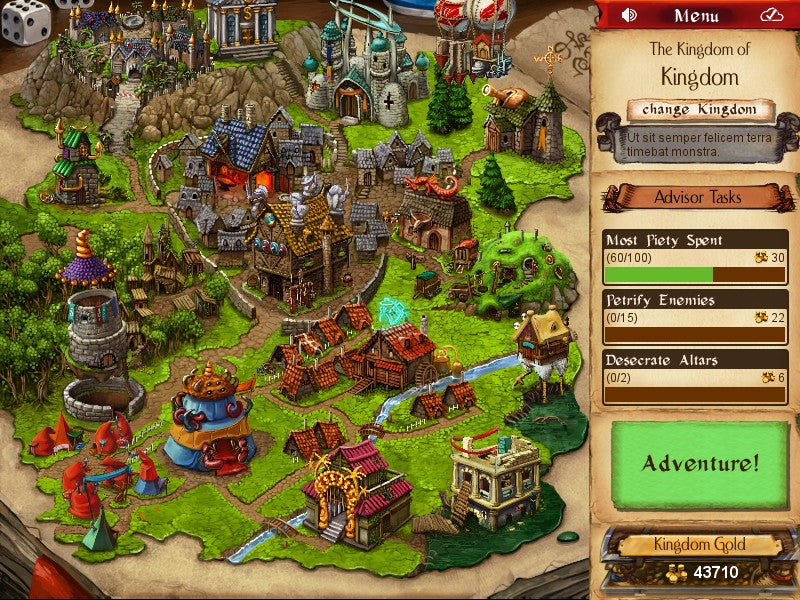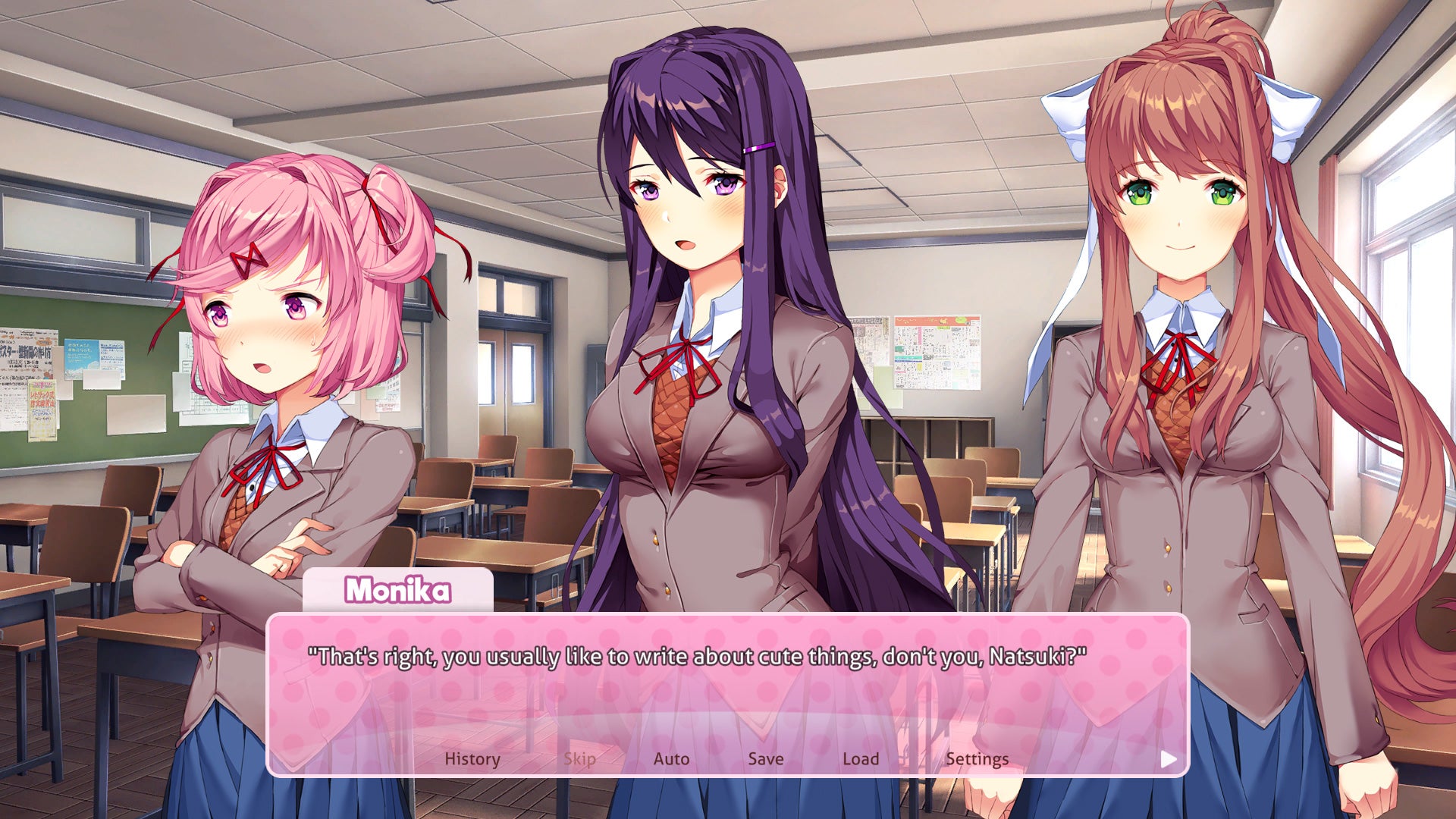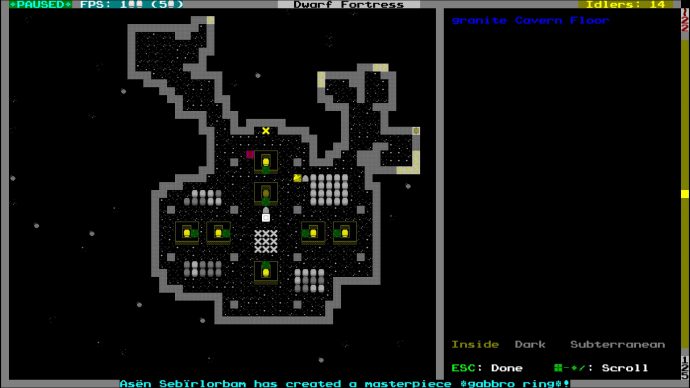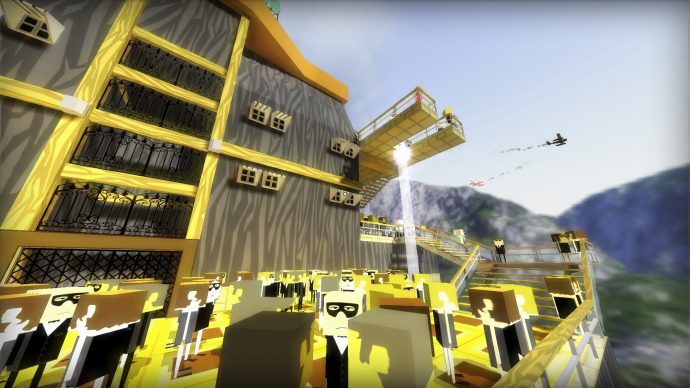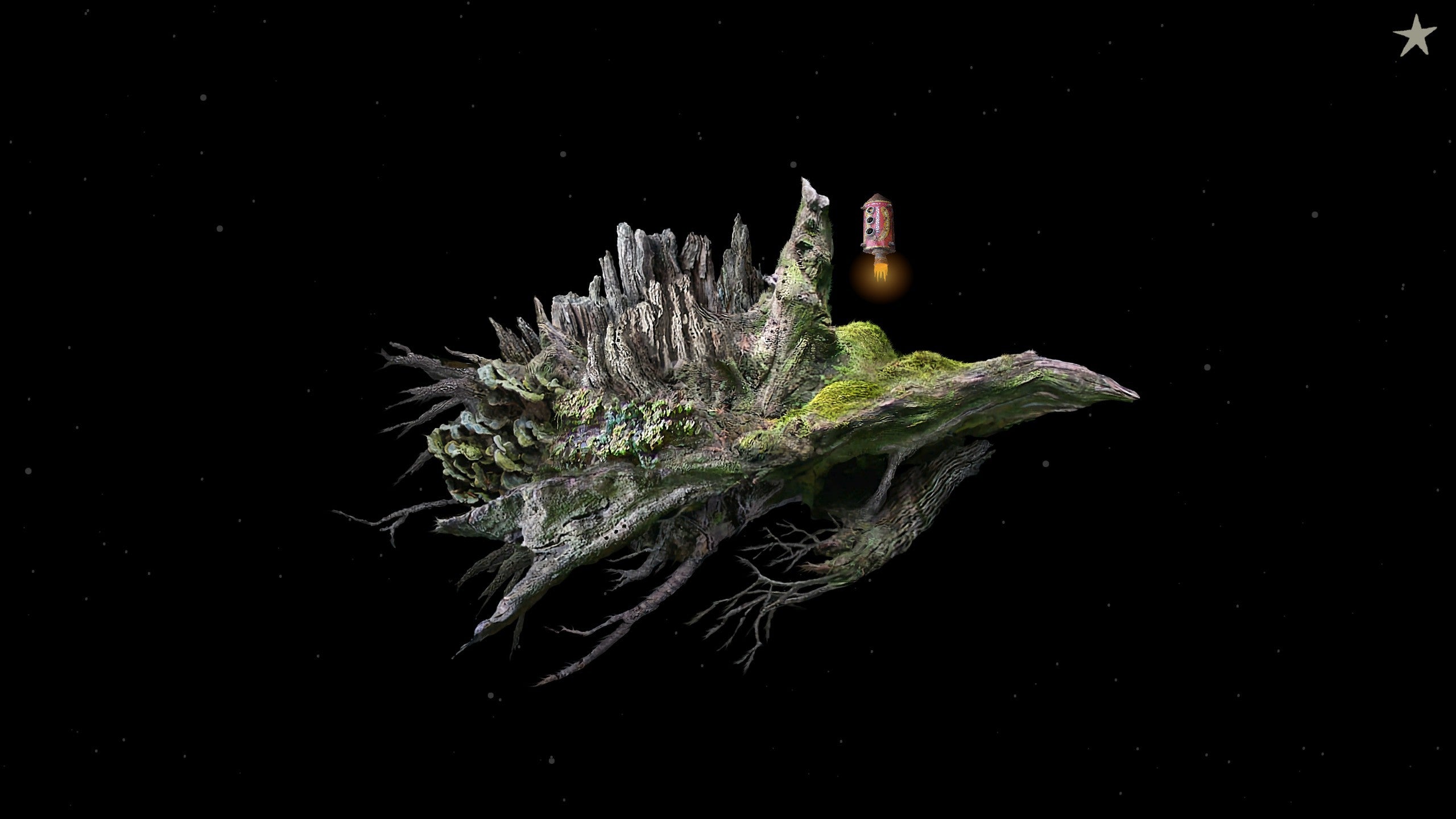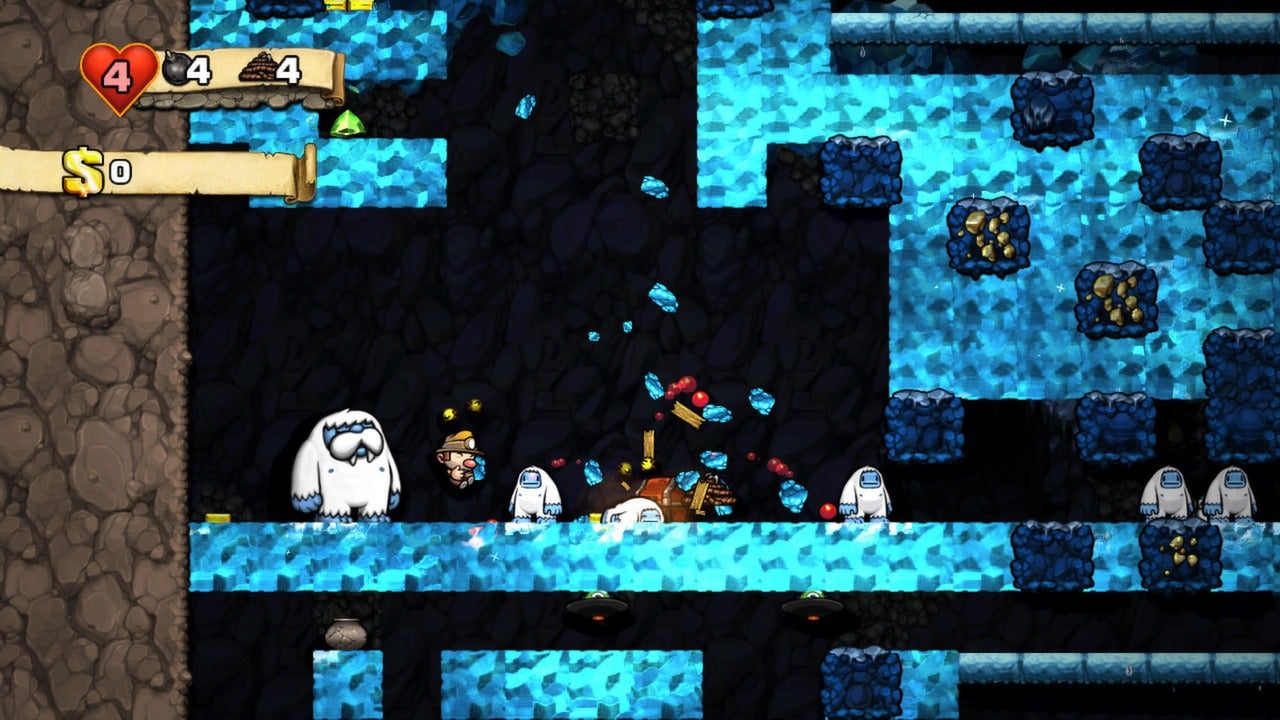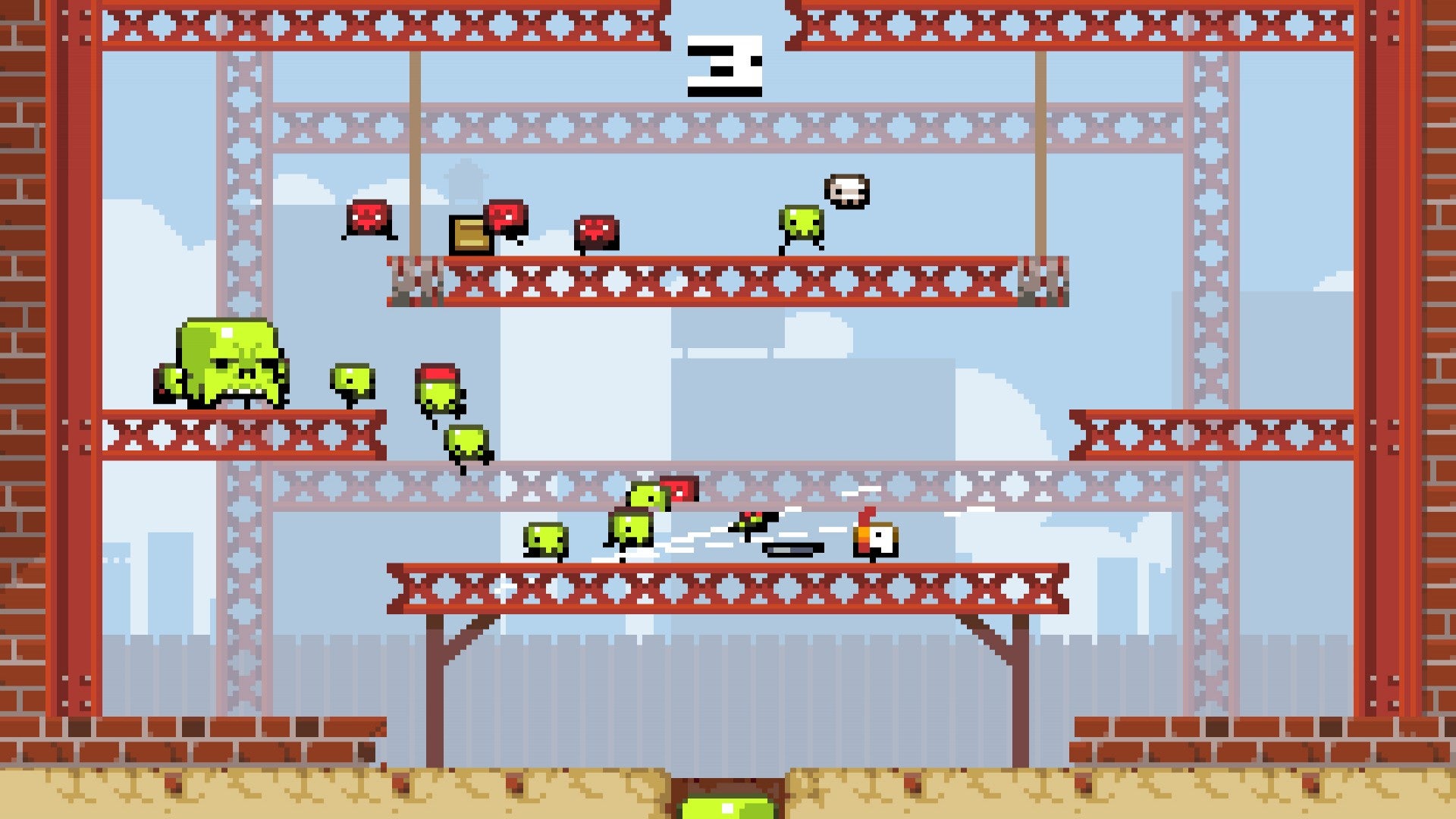What PC games are free right now?
Here’s what’s free at the moment on the Epic Games Store and Prime Gaming:
Recipe For Disaster (free until Feb 16 on Epic Games Store) The Elder Scrolls III: Morrowind GOTY Edition (free until Mar 2 on Prime Gaming) Onsen Master (free until Mar 9 on Prime Gaming) Aerial_Knight’s Never Yield (free until Mar 16 on Prime Gaming) Divine Knockout (free until Mar 16 on Prime Gaming)
Prime Gaming will also allow you to claim the following games for free throughout February:
One Hand Clapping (free from Feb 16 on Prime Gaming) BATS: Bloodsucker Anti-Terror Squad (free from Feb 16 on Prime Gaming) Space Crew: Legendary Edition (free from Feb 23 on Prime Gaming) Tunche (free from Feb 23 on Prime Gaming) Space Warlord Organ Trading Simulator (free from Feb 23 on Prime Gaming)
Best free PC games
Our list includes both free and free-to-play games, and anything with a mandatory cost has been booted. Mods and anything dependant on another purchase have also been stapled to a frisbee and thrown out a window, so feel safe in the knowledge that you won’t be spending a single penny. The result is a list of games including everything from ARPGs to managament, 2D platformers to co-op first-person shooters. And if you’re after an MMO that’s free to play, you can check out our dedicated list of the best MMORPGs to play, as many of our favourites don’t require subscription these days. Our picks could have easily stretched to three times as many games as we’ve squeezed in below, which means you might have many suggestions for games we’ve missed. If you’re adamant that your favourite free game belongs here, hop to the comments and type out the reasons why. You might compel us to add or re-add it to a future update - or, you might just compel a few of your fellow readers to try something new. Win-win!
MultiVersus Rocket League Halo Infinite (multiplayer) Call Of Duty: Warzone Genshin Impact Apex Legends Dota 2 Dr. Langeskov The Tiger and The Terribly Cursed Emerald: A Whirlwind Heist OpenTTD Path Of Exile Team Fortress 2 Alien Swarm Warframe World Of Tanks Battle For Wesnoth Brogue Butterfly Soup Cataclysm: Dark Days Ahead Desktop Dungeons Doki Doki Literature Club Dwarf Fortress Gravity Bone Samorost Spelunky Super Crate Box
MultiVersus
Character perks and classes invite players to work more cooperatively which is a nice touch, but the doubt is whether WB can make the characters feel as weighty as Smash Bros’ iconic character roster. Regardless, it’s hard to criticise too much when MultiVersus is completely free-to-play and a great brawler to play with friends which is why it deserves a coveted spot on our list. If you’re looking for a head start, check out our MultiVersus character tier list to see which character is the best.
Rocket League
Rocket League has elevated the game of football with rocket-propelled cars. Instead of boring human legs, you punt a huge football with bumperific force. When you first sit behind the dash, you’ll find there’s zero co-ordination between you and your team. The car feels like an alien space-ship and the ball a zero-gravity orb you can’t bloody hit. But with time, comes mastery. And hoo boy does it become a whole lot of fun. Manage to pull-off an aerial strike and it’s an unmatched feeling. Even just the act of slamming the boost button to clip the ball away from someone else’s bonnet is fantastic. Give it time and you’ll come to learn that rocket-propelled football is the future. Check out our list of Rocket League codes too for even more free stuff.
Halo Infinite (multiplayer)
Ever since the rocky reception to Halo: 5, I didn’t think we’d ever get the Halo ‘feel’ back. That spartan mould of old, which seemed to lose all of its weight as Bungie left and 343 Industries took over. But no, I’m wrong. So ecstatically wrong. Halo Infinite’s multiplayer isn’t only free-to-play, it’s Halo again. As Brendy says in his Halo Infinite multiplayer impressions, it’s a “classical arena shooter”. Flags are there to be captured, flaming skulls must be clutched for as long as possible. Sometimes, you’ve just got to frag-out. No battle royale nonsense, just snappy Halo gunfire mixed with clunk comedy. Each map is a playground and you’re the box of crayons scribbling silliness with explosive effect. Make sure are firing on all cycliners though with our Halo Infinite Tier progression guide.
Call Of Duty: Warzone
Call Of Duty might not be up everyone’s alleys, but there’s no denying that it’s a slick free-to-play FPS package. This is a battle royale that sheds the faff of similar games in favour of action; the focus is solely on getting you into fights and showcasing COD’s delicious shooting. It’s also one of few battle royales that lets you create your very own custom loadouts, which you can then call into the warzone if you’ve accrued enough cash. Another thing about Warzone is pacing. Matches are balanced just right, so you’re never just running for ages with nothing to do. There’s rarely any filler, and if there is, it’s not likely to last half as long as marathons in PUBG or even Apex Legends, honestly.
Genshin Impact
Breath Of The Wild likely won’t ever come to PC, but Genshin Impact captures some of its charms. It offers a verdant open world, the ability to climb any surface, a hang glider, gentle environmental puzzles and groups of moblin-like creatures to batter. What it swaps out is the combat system: there’s no weapon degradation, and in its place is a set of more traditional RPG systems. That includes the ability to swap between four characters at a time, each with their own class, and a million swords, bows, magic books, and more to loot and tinker with. The result is a game that’s constantly tempting you with interesting landmarks on the horizon, and constantly rewarding you with a Diablo-style drip of items, XP and levels. Even the catch - that it’s a free-to-play gacha game about spending real money to gamble for unlockable characters - isn’t much of a catch at all. You’ll get six characters for free, enough ‘pulls’ at the character spinner to probably unlock two or three more, and you’ll be 40 hours in before you start to hit any real roadblocks to progress. And on top of that, you’ll find yourself chasing down Genshin Imapct codes for even more free stuff.
Apex Legends
“This is the best battle royale game we’re going to see for a long, long time.” So reads the RPS Apex Legends review, in words that could so easily have backfired. It’s been nearly three years though, and those words seem more true than ever. Apex has more clever new ideas than you’ve got front teeth. Characters have abilities, gluing Overwatch-style tactical consideration to last-squad-standing tension. The ping system has set a new industry standard for communication. Players can respawn, an idea so good that Fortnite couldn’t resist pinching it (as they should). Supply drops and supply ships give players objectives to pursue, zipwires and balloons give them exciting ways to get there. Or you can always just bumslide your way over. The bumslides are magnificent. The result of these movement abilities is a game where you can often escape from encounters - a refreshing change of pace from Royales where death often arrives at the hands of enemies you never saw. If your looking for a head start, be sure to check out our Apex Legends tips and tricks guide and are rundown of the game’s best guns.
Dota 2
Once you’ve played your first thousand hours of Dota 2, it really starts to click. It’s a bottomless rabbit hole about two teams of wizards attempting to destroy each other’s rock garden. An average match lasts about an hour, as you and four other wizard-clickers weave a path through hundreds of characters, items and spells. Success hangs on a myriad of factors. You’ve got to think about positioning, teamwork, psychology, tempo. Every layer you peel back reveals another beneath it, a constant influx of considerations that frame the game in a whole new way. While other MOBAs offer a rotating pool of free heros and make you buy your faves, every Dota hero is completely free. It’s a refreshingly generous business model that reflects yet another part of the game’s appeal: restricting your options simply wouldn’t work when countering your opponent’s hero choices can be so crucial.
Dr. Langeskov The Tiger and The Terribly Cursed Emerald: A Whirlwind Heist
It’s like the Stanley Parable but with more Simon Amstell. The voice of the broken comedian takes you through the backstage sections of a fictional videogame that you are supposed to be playing, always promising that you are next in line to play, in just a little moment, yes, very soon. Obviously, there are problems. The creators have been hit with a strike and the “game” won’t function properly. That means you are drafted in to press buttons, follow instructions, and generally mess about behind the scenes of whatever appears to be happening to your unseen counterpart beyond the walls and separators of this silly set.
OpenTTD
Chris Sawyer created Transport Tycoon for MicroProse in 1994, and it was a wonderful management game full of the soothing charms of oil refineries, freight shipping and business simulation. Which sounds like a joke but isn’t: it was an amazing game and playing it could cause hours and days to vanish as if in an instant. Open Transport Tycoon Deluxe is an attempt to remake that original game as closely as possible, but with a few additions which take advantage of all the technological progress of the intervening years. You’ll still be building a shipping empire, but on vast maps, and in multiplayer, and with a range of bug fixes and enormous improvements to AI over the original. Best of all, OpenTTD comes with its own community-made art and sound packs, meaning it requires nothing from the original game. That’s what makes it completely free. There’s oodles to play with here, too. If the old maps don’t suffice, you can download the hundreds created by the community, many of which include new art assets, directly from the game’s interface itself.
Path Of Exile
Path Of Exile is a gore-slick and intricate action RPG with a refreshingly antipodean setting and voice cast. While it may escalate into near-fractal complexity, it starts out as simply as any Diablo or Torchlight: you walk around, you bash monsters, you level and loot, and in the process become an ever-more powerful bringer of death. The early stages of the game are an almost absurd power trip, as the huge number of options available to you all turn you into a huge machine of death. If you want to survive the endgame however, you’ll need to make some careful choices regarding your character build - or just follow a guide you found online. Thankfully the business model doesn’t get in the way of your character’s progress. While a loot and levelling-heavy free-to-play game could be an exploitative mess, Path Of Exile is resolutely ethical. Every class, every dungeon, every piece of loot is earned by playing normally, with no shortcuts available.
Team Fortress 2
Team Fortress 2 is thirteen years old, but it still feels modern because it re-made the formula for online shooters in its own image. It’s a team-based hero shooter, essentially, from a time before we knew the term “hero shooter”. Two teams of whatever size do battle against one another, with each player choosing from nine available characters. Each character has their own weapons and abilities, and teams will either be attacking or defending on maps about capturing briefcases, capturing points, or pushing a payload across the map. TF2 turned its (now dried-up) drip-feed of new levels and weapons into a part of the game’s entertainment, and in the process layered sub-classes upon those initial archetypes. While its original appeal lay in part in its elegance, now it has depth. The Sniper is as fun to play as he always was, but now you can play him with a bow and arrow rather than his original rifle. The Demoman is as fun as ever if you’re using his bombs, but you can also equip him with an enormous Claymore sword that lets you lunge towards enemies. There are dozens of these, and enough fun to keep you entertained for months or years. As for its free-to-play trappings: its mostly hats, which are optional. You can also unlock crates for a chance at getting new weapons, but they’re also craftable if you don’t want to spend anything.
Alien Swarm
Remember when Valve released a game for free? Not free-to-play, just free. It’s called Alien Swarm, it’s a standalone follow-up to a mod, and its Valve’s first released game that wasn’t a first-person shooter. Instead, Alien Swarm is a four-player co-op game in which you control a character from above as you fight swarms of… yeah. You do so as one of four classes: Medic, Officer, Special Weapons and Tech, who have distinct abilities such as hacking doors, placing turrets, and healing teammates, but who all spend most of their time popping bugs with shotguns and machineguns. Alien Swarm is simple and around three-hours long, but it’s as well-crafted as everything Valve does. That’s in large part due to the level design, which funnels you and your enemies into chokepoints, dramatic last stands, and achingly long waits for slow moving elevators.
Warframe
And the award for most improved free-to-play game goes to Warframe. In fact, ‘improved’ does Digital Extremes’ space ninja looter-shooter a great disservice; it’s almost unrecognisable from what launched in 2013. What was once a handful of level tilesets to endlessly grind through is now a proper solar system, featuring two vast open world areas, a Gundam-like suit for dogfighting missions, a hoverboard (swapping resource grinding for handrail grinding), a series of AI companions (ranging from a mini-Metal Gear to a full-on space wolf) and a roster of 66 Warframes to learn and master. It makes Destiny look like a tiddler. Warframe is also a great advert for itself. Every level you’re surrounded with co-op partners doing seemingly impossible space magics with their alien frames, and it’s a tantalizing glimpse of your potential future. As long as you resist the siren call of a Platinum currency purchase, it’s all the inspiration you need to put your head down and grind your way through the shopping list of required ingredients to craft those frames for yourself.
World Of Tanks
In each round of World Of Tanks, small teams of players, each controlling their own tank, rush out from starting positions to do battle across mid-sized maps that alternate open areas and claustrophobic chokepoints. The tactics required are all about positioning: how do you get an angle on an enemy without exposing the vulnerable side of the angry house you’re driving? Can you position yourself on that elevated ridge such that your artillery tank can hit its target, without simultaneously exposing yourself to a half dozen enemies rolling around below? Those artillery tanks are a particular favourite because they’re basically snipers - snipers with the ability to view their targets from a magical top-down perspective. This feels like it should be ridiculously overpowered, but you’re still burdened by both needing line of sight, and having to lead your shots to account for the long travel time on each shell fired.
Battle For Wesnoth
For years and years, David White’s turn-based hexathon has been one of the great freeware strategy games and it has been consistently updated with new content and improvements. Throughout all that time, Wesnoth has remained 100% free. It’s not just one of the best free games on PC but one of the best games within this genre available anywhere. There are sixteen campaigns, spanning all the races of the world, and even covering the distant future of Wesnoth, and the included editor means you can design your own scenarios or simply download unofficial content when you’re done with the wealth of material included. Brogue is an ASCII roguelike, meaning its environments are made up of the letters from your keyboard. Most games of this ilk are at best ugly and at worst impenetrable and confusing, yet Brogue is neither. Its shimmering colours depict floating gases and flowing liquids with style, while its mouse controls make it a cinch to move around and to hover over each item on screen and discover what it is. The result is a roguelike that’s, yes, about moving through caves and permanently losing your progress after each death, but one that you can’t play without coming away with a story to tell. A story of a potion you slugged which cast you down into the depths. Of a frog who poisoned you and made you mistake a rat for a vampire. Of a monkey you saved, who became your ally, and then broke your heart. If you’re going to play one traditional roguelike, make it this one.
Butterfly Soup
Butterfly Soup is a visual novel set in America about queer Asian girls playing baseball. The lead character, Diya, is Indian-American, a high school student, and a lesbian growing to understand her feelings for her friend Min-seo. The rest of the cast is similarly inclusive, but what makes the game great is that it moves the characters beyond the labels attached to them, and depicts them as whole people. That’s in part thanks to a thick streak of the relatably mundane which runs through the game: Diya is grappling with those feelings for Min-seo, but she’s also stressing about school, chatting about baseball, going to the mall, and rushing excitedly towards potential dogs. The game is mostly made up of conversations, taking place with friends around town or in IM conversations, but those conversations aren’t structured around currying favour or attaining a goal. Instead, they’re written with a light touch and a lot of humour. There’s a haziness to it that makes it easy to fall in love with the characters and their warmth towards one another after spending just 15 minutes with them.
Cataclysm: Dark Days Ahead
One of the most complex and initially intimidating games in existence, Cataclysm: Dark Days Ahead is also one of the best, should you be able and willing to navigate the learning curve. It’s the post-apocalyptic survival simulator that games like DayZ aspire to be, packed with the unexpected and terrifyingly complex. You can repair a car and mow through crowds of zombies but you’ll also need to keep an eye on your supplies of food and drink. Cataclysm is a full-featured life simulator that just so happens to take place when there’s little life left in the world.
Desktop Dungeons
Desktop Dungeons is very, very clever. Desktop Dungeons is also very, very simple at first glance. A roguelike in which every level is a puzzle, and where survival is dependent on working out the correct order in which to approach its enemies. It’s only when you play through level after level, death after death, that you begin to see the extreme precision of its design underneath the surface. Your hero’s health and mana are not simply meters to be emptied and filled, but resources from which every expenditure is an important choice. Make those choices unwisely and you’ll end up running out of either one, with no way to recharge and enemies left on the board to defeat. What I admire most about Desktop Dungeons is that no death is ever unexpected. The game will tell you that the decision you’re about to make is going to kill you, and you will therefore only choose that death if there are no other options. Sometimes, though, there are ingenious methods by which to escape said death and figuring those out feels great.
Doki Doki Literature Club
Doki Doki Literature Club follows the template of a thousand other visual novels: you’re a non-descript teenaged boy in a Japanese high school who decides to join a new after-school club. There in the literature club of the title, you meet four cute anime girls, and the (very occasional) choices you make amid reams of dialogue and description determine which of those girls grow to like you. It’s sweet, and well-written as far as these things go, but in the back of your head should linger the words that appear when you first run the game: “This game is not suitable for children or those who are easily disturbed.” What’s disturbing about a traditional dating visual novel? The answer is smart and brilliant, but to say anything else would spoil the fun. If you need more convincing that it’s worth your time and don’t mind spoilers for the entire game, then read our analysis of exactly what’s so clever about it.
Dwarf Fortress
“Etar Patternedtombs was a mint green demon. It was the only one of its kind. A gigantic feathered ass twisted into humanoid form. It undulates rhythmically. Its mint green feathers are patchy. Beware its deadly gas!” But enough about your dad - let’s talk about Dwarf Fortress. Dwarf Fortress is a fantasy simulation game that’s become famous for the endless anecdotes produced by the collision of its teeming forts, its emotionally unstable dwarves, and a world of elves and goblins and terrible hellbeasts that want to destroy them. It’s also infamous for its obtuse interface, which by default renders the world’s absurd detail with simple ASCII graphics. If you can overcome such challenges to your patience - and there are plenty of friendly tile graphic sets - then what awaits you inside is a management game unlike any other, with characters whose fingernails grow, who mourn the death of their pets, whose grief can trigger city-destroying events, and who write poetry about their infinite sadness.
Gravity Bone
Gravity Bone seemed to land fully formed. It opens with you descending in an elevator, gazing through grating towards a colourful party scene. Distant biplanes are flying against the blue sky. The architecture is unusually yellow. Latin music is playing. There’s a card in your hand which, with simple instructions, gives you your mission. It seeds a feeling of adventure and mischief in mere seconds. Everything that follows keeps up the wit and lightness of spirit. Gravity Bone is a story of espionage, assassination, double-crosses, thrilling chases, and it makes use of quick cuts and techniques borrowed from film in a way that’s still fresh now. Best of all, it’s funny. There’s no dialogue, but chasing a thief down the length of a long dining table while glasses explode underfoot is a physical and visual set piece designed to make you chuckle.
Samorost
Released in 2003, Samorost is a point-and-click adventure game that forgoes many of the normal trappings of the genre. There are no dialogue trees, no inventory items, and you don’t directly control its main character. Instead you solve its puzzles by playfully clicking on scenery in order to discover the path forward, and the joy comes from the beauty, strangeness and gentle humour of that world. A world in which character’s inhabit planets built from tree roots, which can be travelled between by piloting soda can rocketships, and where progress might be achieved by getting a man stoned or by unfurling a proboscis into a tree’s mouth. Samorost’s texture and pace is unusual, and it holds more in common with old, strange children’s fiction like the Moomins than it does the other games on this list. There have been two bigger, prettier sequels that you can buy, but the first Samorost game is still wonderful 12 years after its release, and you can play it for free in your browser right now.
Spelunky
Spelunky isn’t just the best free game ever, it’s also probably, maybe definitely, the best platformer, and simply, best game ever. And it’s not because of its procedural level generation, or the mixture of permadeath and platforming that spawned a genre of imitators, but because of the design of its items, traps and enemies. Spelunky is a tightly wound machine, precision-engineered to create moments of anticipation, drama and comedy. Anticipation. You’re stood upon a ledge looking down at two spike traps, a caveman and a man-eating plant. You know that you should drop calmly atop a spike trap, jump on to the other, and then over and away from plant and man. Drama. You make the leap and immediately overshoot it, missing the surface of the first spike trap and instead grabbing onto its side. You are moments away from being spiked to instant death. Comedy. You leap away from the spike trap just in time, but in your panic dive directly into the mouth of the waiting plant. You are dead. Spelunky doesn’t have the brighter high-definition art of its paid-for remake, Spelunky HD, nor its co-op or daily challenge modes. But it is still a masterclass of game design: a perfect loop of rules for creating infinite fun situations.
Super Crate Box
Vlambeer are known today for Nuclear Throne. And Luftrausers. And Ridiculous Fishing. But before they became the reigning kings of “game feel”, they proved their skill by releasing Super Crate Box, a free, single-screen shooter. It has two rules: one, enemies flow along platforms from top to bottom, and if they fall into the firepit at the end, they re-appear at the top in faster, angrier form; two, you score points by collecting the crates that drop at regular intervals, but each crate also randomly replaces your weapon. These two rules, when combined, create a game which is frantic but tactical. You’ll be battling to keep the crowd under control, but while one moment your melee weapon will require you to get close, the next you’ll have a rocket launcher and be trying to keep out of the blast zone. It’s an exhilarating score attack game - and yes, it feels great.
